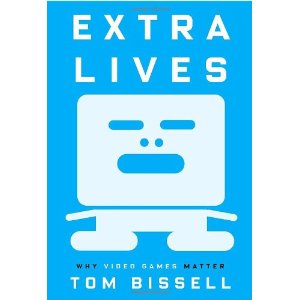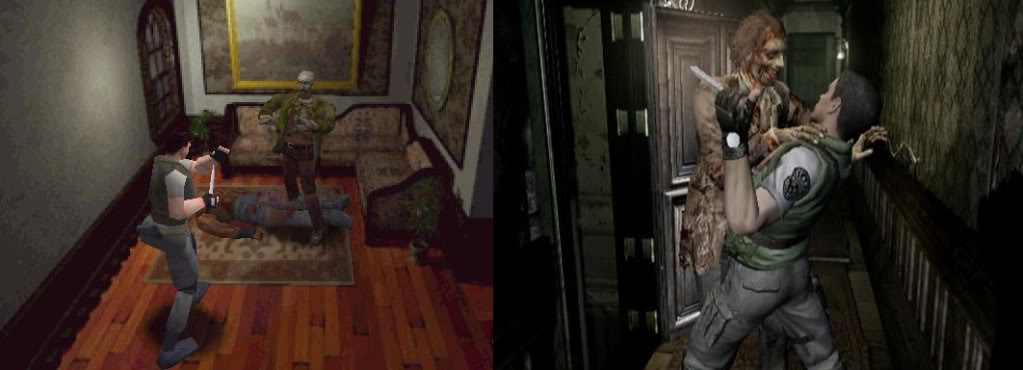This post has not been edited by the GamesBeat staff. Opinions by GamesBeat community writers do not necessarily reflect those of the staff.
 Editor’s note: Do video games matter? Tom Bissell’s new book centers around that question, but Ben wonders if the text could be an inspiration for the more dedicated players among us looking for the direction needed to connect the less interested with the joy of playing games. -Rob
Editor’s note: Do video games matter? Tom Bissell’s new book centers around that question, but Ben wonders if the text could be an inspiration for the more dedicated players among us looking for the direction needed to connect the less interested with the joy of playing games. -Rob
Whenever gamers gather around a “great book,” it’s usually something along the lines of a new Halo novel.
I’d heard a lot about Tom Bissell’s gaming memoir/critique Extra Lives: Why Video Games Matter. Who the hell is Tom Bissell, anyway? Sounds like a pen name for a Spaced fanboy, if you ask me.
But when I spied a copy in my local bookstore, I turned to his bio inside the jacket sleeve. Still, I’d never heard of any of his books, and I don’t read any of the publications for which he’s known. Before I put it down, though, I looked at some of the praise on the back cover; the words “Resident Evil” caught my eye:
“Tom Bissel’s description of killing zombies in the first iteration of Resident Evil is simply a tour de force.” -Keith Gessen
Strong words, indeed. I flipped to the chapter and read. And suddenly, I wasn’t in a bookstore anymore. I was in a mansion in a “forest zone situated in the northwest of Raccoon City” defending myself frantically from zombies. That was it. I was hooked. I bought it and devoured it. It’s excellent.
That Bissell is simply an excellent writer is readily apparent. He scrawls with a level of wit that lesser authors can rarely muster, let alone maintain for 200 pages. And while he’s clearly passionate, he never falls into fanboyism; he may love games like Far Cry, but he’s just as acutely aware of their achievements as he is their faults.
But his description of the first 10 minutes of Resident Evil (a game that, like Bissell, I cherish) took me back to that carpeted floor in a dark room as I frighteningly pulled the trigger and wasted precious ammo every time the phone rang (even though he did so for the first time on the PlayStation original, and I played the GameCube remake). And I thought, “If he does this with every game he discusses, it’ll be like replaying my favorites!”
Of course, Bissell doesn’t do this for the entire length of the book. For starters, he brings up close to a hundred games.

Bissel saw the left image…and I saw the right one. We both peed our pants.
Even after twenty years of playing, only about a quarter of those he mentions have graced my eyes. So, no — reading Bissell’s book isn’t like replaying my favorite games. It’s better. It’s like getting to play a bunch of titles I never got to experience.
Now, don’t get me wrong; I’m not suggesting that Bissell’s descriptions of Fallout 3 can supplant playing it for oneself. But after a chapter about developer Bethesda’s blend of first-person shooter and role-playing games, I have a better sense of what it is, how it plays, where it fails, and why it’s good than all the fanboy ravings and professional reviews I’ve read.
If he does this with a game that I’m very unlikely to ever get to due to my enormous backlog, isn’t that the next best thing? Fallout 3 and Mass Effect are huge RPGs requiring time or means I don’t have (no PlayStation 3, Xbox 360 or capable PC, you see). But at least I can appreciate their intense work in dialogue trees that create a unique experience for every gamer that is on a level deeper than just, “ZOMG! Fallout FTW!!!”
And I’d always viewed Gears of War as just another war shooter without paying it much attention. But finally knowing what stands out about it (besides its innovative cover system and curb-stomp attack) and what went into those ideas makes me want to play and appreciate the game. That is a huge feat to Bissell’s credit.
If I were to criticize any of Bissell’s work, it would be his odd lack of Nintendo references. Granted, much of his book is memoir, and he can hardly be faulted if he simply didn’t play Nintendo games, or if they didn’t resonate with him. But at some point, he played games with this book in mind, and choosing not to get into any of them (new, old, whatever) suggests to me that those games don’t matter.
I realize that this is probably going out on a limb, but it goes back to my comment that most of the games Bissell mentions I haven’t played. And given that I grew up on Nintendo, it’s safe to assume that he’s only played a similar handful of what I might have listed. I can only presume then that most readers would have played the same fraction of Bissell’s games.
And even if their own memoir contained the same entries, it would no doubt be filled with different experiences. I may be wrong, but I can’t imagine too many gamers addicted to cocaine and Grand Theft Auto simultaneously.

How many Gears of War players are more interested in fragging online than in Bleszinski’s subtle attention to architecture?
And all of this begs an even bigger question: For whom is this book written? The droves of “casual” gamers play for the entertainment — not the experience. And those who’d place themselves in the “hardcore” camp already know why video games matter, even if we can’t fully express why. Is Bissell then just preaching to the converted? Absolutely! But that just makes us missionaries with a bible from which to finally preach ourselves.
Is it perfect? No. But it’s the best we have so far.
